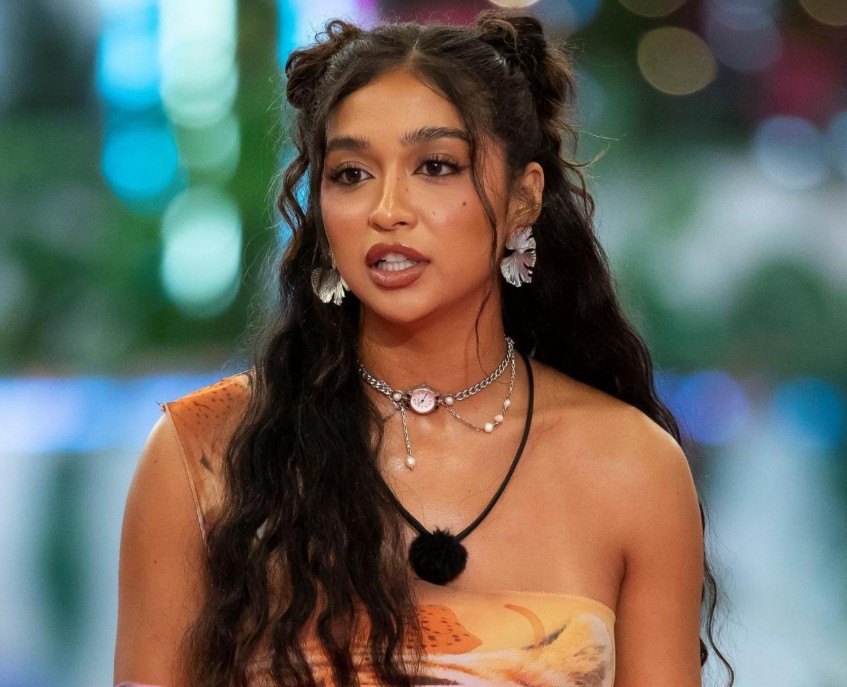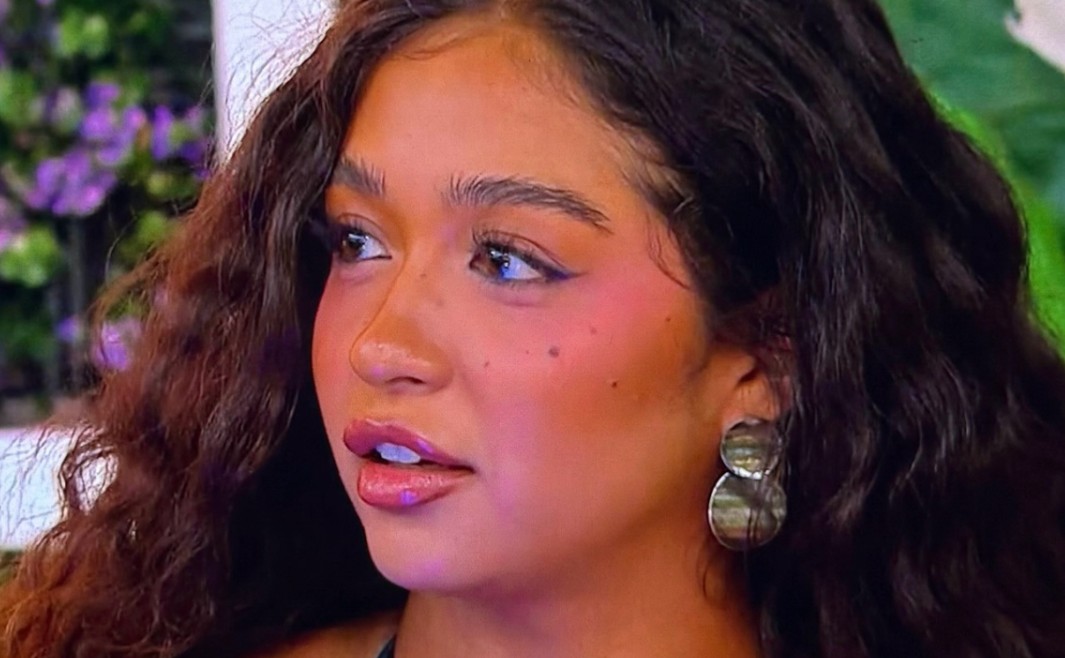Cierra Ortega Racial Video Controversy Leads to Sudden Exit
In the high-stakes world of reality television, the lines between personal histories and public personas often blur, with every post, comment, and decision scrutinized under a microscope. That dynamic was put on full display this season on Love Island USA, as contestant Cierra Ortega made a shocking early exit from the villa just one week before the show’s anticipated finale. Her departure came amid a wave of backlash triggered by resurfaced social media posts containing racial slurs, prompting debates around accountability, internet culture, and the responsibilities of reality TV producers.
Content
Ortega’s Entry and Swift Exit Video
Cierra Ortega entered the villa as a “bombshell” the term used for new contestants introduced after the initial cast, at the end of the first episode. These late arrivals are often intended to shake up established dynamics and test romantic connections. However, Ortega quickly found stability on the show, coupling up with fellow contestant Nic Vansteenberghe. The two appeared to be one of the more promising couples of the season, growing close and eventually declaring themselves “closed off,” an islander phrase indicating exclusivity.
Video Reveals the Reason Behind Cierra Ortega’s Exit from Love Island USA
But the budding romance came to an abrupt halt when, during Sunday’s episode, narrator Iain Stirling announced that Ortega had left the villa “due to a personal situation.” No additional details were provided by the show’s producers, and fans were left stunned. While the episode focused on the remaining contestants adjusting to her absence, it didn’t take long for the public to connect the dots between her exit and a recent online controversy.
Resurfaced Posts Ignite Outrage
Cierra Ortega’s departure followed growing unrest among Love Island USA fans who had unearthed and widely circulated past social media posts in which Ortega used a racial slur targeting Asian people. The posts, which quickly went viral across platforms like X (formerly Twitter), Reddit, and Instagram, prompted calls for her removal from the show and raised questions about the vetting process for contestants.
The timing of Ortega’s exit and the vague explanation from the show fueled speculation that the controversy was the driving force behind her sudden departure. Viewers noted the similarity to a previous situation earlier in the season, when contestant Yulissa Escobar also left the villa following the emergence of clips showing her using racist language. Like Ortega’s exit, Escobar’s was not explicitly addressed in the broadcast, with producers opting to quietly remove her without public explanation.
The Show’s Lack of Transparency
Peacock, the streaming platform airing Love Island USA, has not issued an official comment regarding Ortega’s departure. A spokesperson declined to respond to media inquiries on Monday, further contributing to a sense of opacity that has drawn criticism from fans and media analysts alike.
Reality television has long walked a fine line between entertainment and ethics, and this incident has once again brought that tension to the forefront. Critics argue that the show’s failure to directly address the controversy on-air not only avoids difficult conversations but also sends the wrong message about accountability. With the series now in its seventh season, many are calling for a reevaluation of how production teams handle contestant conduct, both past and present.
Family Statement Calls for Compassion
In the wake of her departure, Ortega’s family posted a heartfelt message on her Instagram story asking the public for “compassion, patience, and basic human decency.” Acknowledging the situation, they wrote, “While Cierra is not in the villa anymore, she is still away. She hasn’t had the chance to process any of this or speak for herself. But we know our daughter. We know her heart. And when she returns, we believe she’ll face this with honesty, growth, and grace.”
The message also revealed that Ortega’s family, friends, and online supporters had received threats, verbal attacks, and cruel messages on social media platforms. “No one deserves that kind of hate, no matter what mistakes they’ve made,” they added. The statement highlighted a growing trend in reality television: the real-world impact of social media harassment and the mental health toll it can take on participants and their loved ones.
Contestants React
Among the current islanders, Ortega’s departure appeared to most significantly affect her partner, Nic Vansteenberghe. Visibly emotional, he shared his confusion and sadness in a confessional during the same episode. “Before Cierra had left, my mind was clear. I knew what the future would look like, and now, I’m lost,” he said.
By the end of the episode, Vansteenberghe re-coupled with fellow islander Olandria Carthen, but the sudden dissolution of one of the villa’s more consistent couples left fans shaken.
Former contestant Belle-A Walker, who was dumped earlier in the season, also weighed in on the situation. As an Asian American, Walker took to Instagram to express her hurt and appreciation for the show’s apparent stance. “Asian hate is oftentimes overlooked and dismissed,” she wrote. “But being a first-generation American, I have personally witnessed and experienced how real and hurtful comments like these are. It is my hope that this situation can help shed light on how big of an issue anti-Asian hate really is.”
Accountability in the Age of Reality TV
The backlash against Ortega is just one in a growing list of scandals affecting reality television stars as fans increasingly examine contestants’ social media histories. With public tolerance for racism and bigotry at an all-time low, audiences are demanding transparency and responsibility from both networks and their stars. As viewers become more engaged and empowered, they are no longer passive consumers, they are watchdogs, critics, and, in some cases, juries.
Love Island USA has previously encouraged fans not to harass or cyberbully its contestants. Host Ariana Madix, in a recent interview with the Associated Press, pleaded with viewers to refrain from doxxing or targeting cast members. Nevertheless, the pace and scope of online reactions make it difficult to prevent harmful behavior once controversy erupts.
The show’s format, which isolates contestants from the outside world by removing access to phones and internet, adds another layer of complexity. Participants are unaware of public sentiment until they leave the villa, making the return to real life all the more jarring when controversy awaits.
A Path Forward?
As Love Island USA nears the end of its seventh season, Ortega’s exit presents a critical moment for producers and fans alike. Can the show become more proactive about vetting contestants for problematic pasts? Will it address these incidents more directly in future episodes? And how can reality television evolve to ensure both accountability and emotional safety?
These questions don’t have easy answers, but one thing is certain: reality TV is no longer just entertainment. It’s a mirror of society’s values, prejudices, and progress. Cierra Ortega’s rise and fall within the villa, from bombshell to controversy, is a case study in how quickly fortunes can change in the public eye.
Her family’s hope that she will return with “honesty, growth, and grace” is a powerful reminder that while past mistakes carry consequences, there is also room for learning and redemption. At its best, reality television can offer more than drama, it can reflect real human experiences, including the possibility of change.
Daily Hot News -Archita Phukan New Viral Video and Photo Leaked
Sophia Hutchins Cause of Death and Dies in ATV Accident
Julian Mcmahon Cause of Death and Dies at 56
When Does The Big Beautiful Bill Go Into Effect
Aces vs Fever and Following Commissioner’s Cup Victory
Mello Buckzz Video and Tragedy at the Mixtape Release
Michael Madsen and Remembered After His Passing at 67



